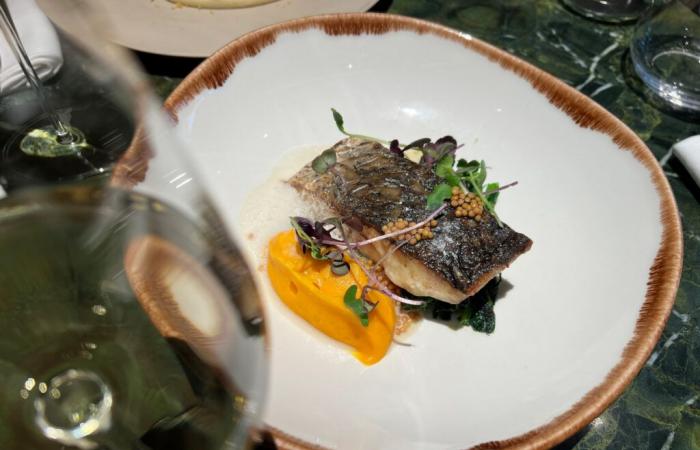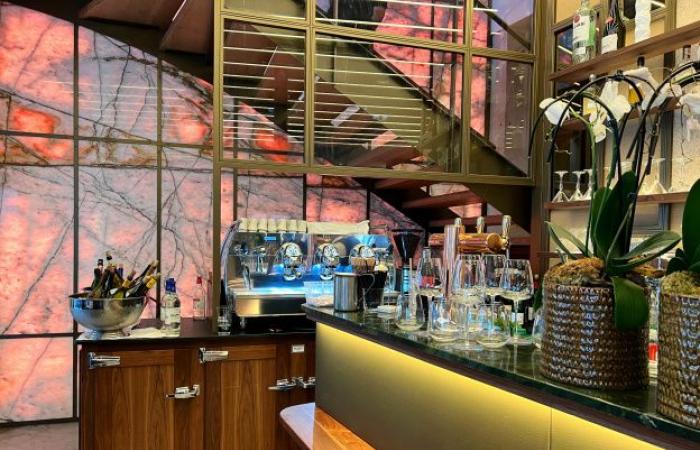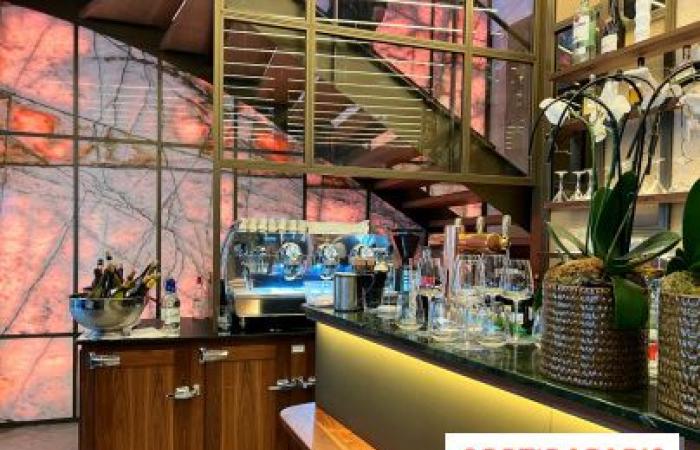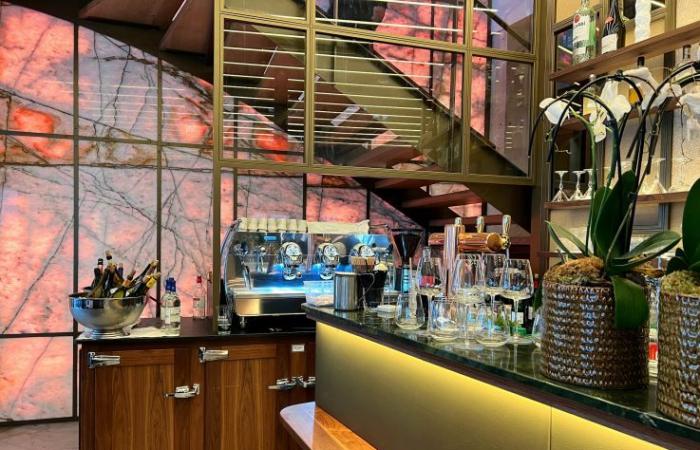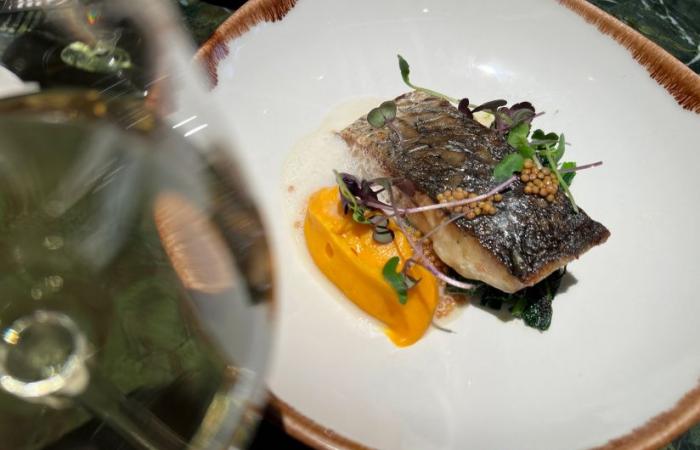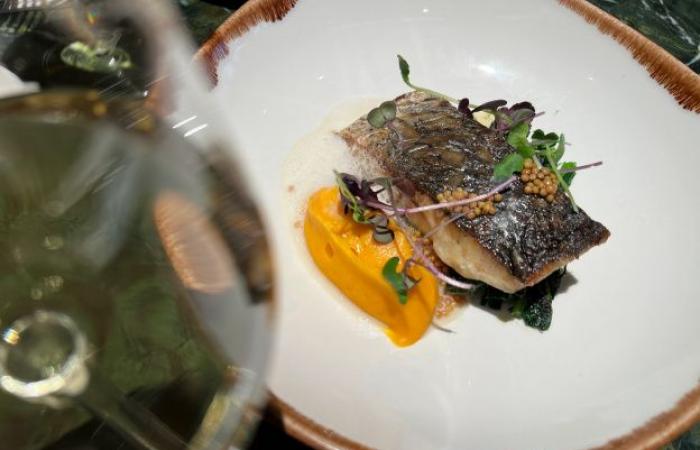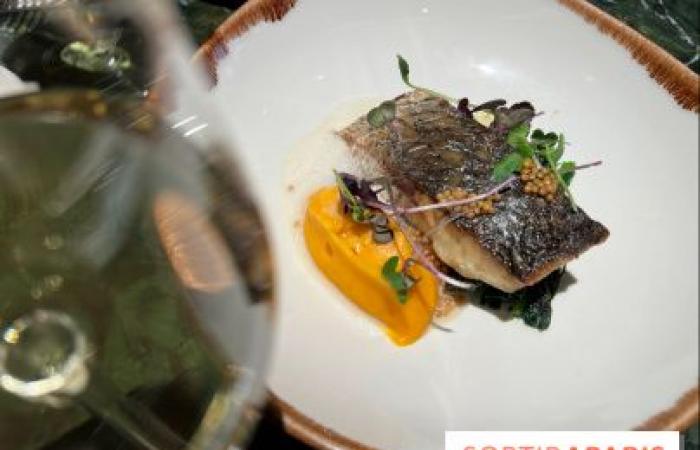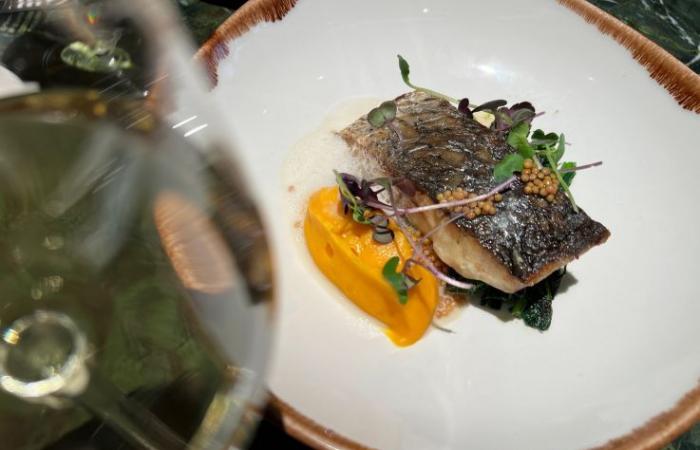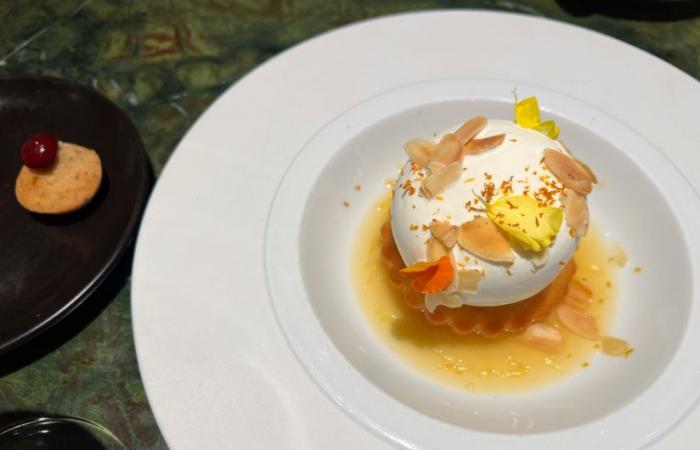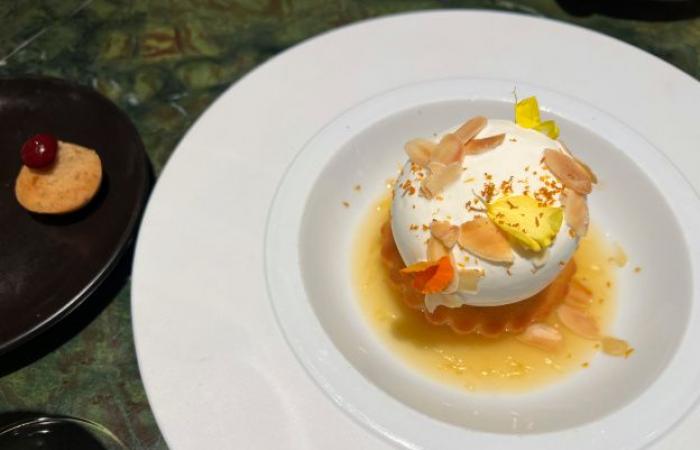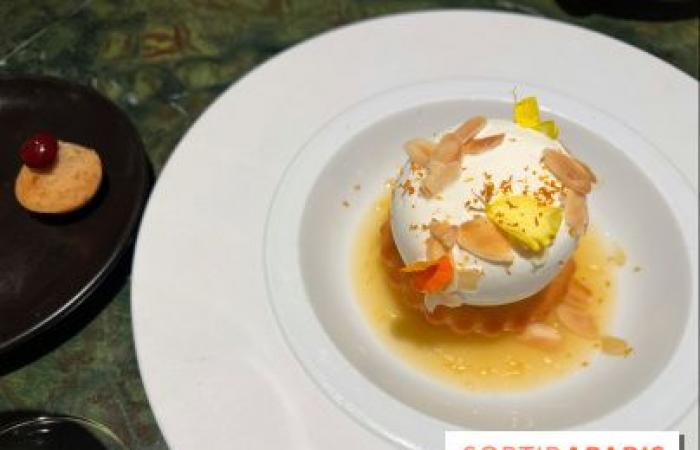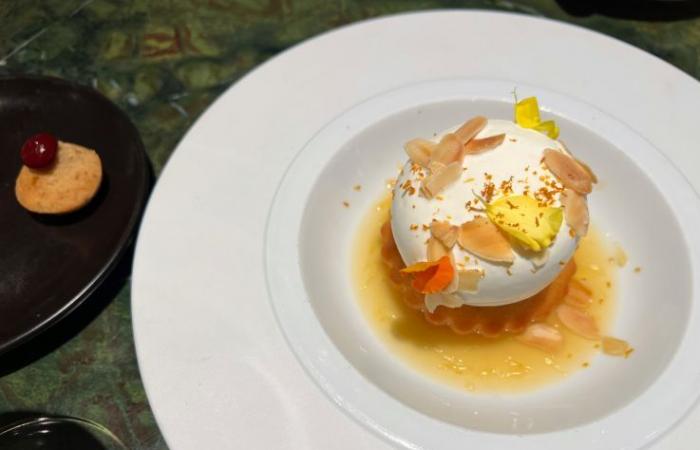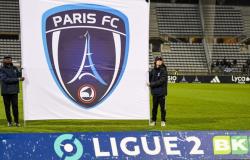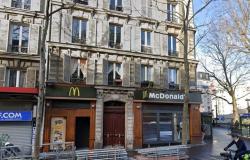A stone's throw from the department stores, Onyx impresses with its 4-meter agate wall and delights with its refined French bistronomy.
Between two shopping trips to Galeries Lafayette or Printemps Haussmann, it is now possible to stop at Onyx, a bistronomic restaurant newly opened by the groupe Marki & co – already at the origin of Sphere, Shiro, Ao Izakaya and TO.
Upon entering the premises, the decoration signed by architect duo Anegil impresses, particularly the 4 meter high onyx wall which gives its name to the restaurant and which covers an entire section of the establishment, from floor to ceiling. Backlit, it gracefully lets the veins of theagate.
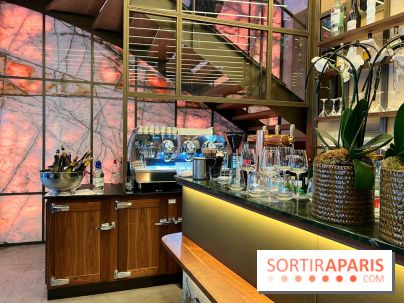
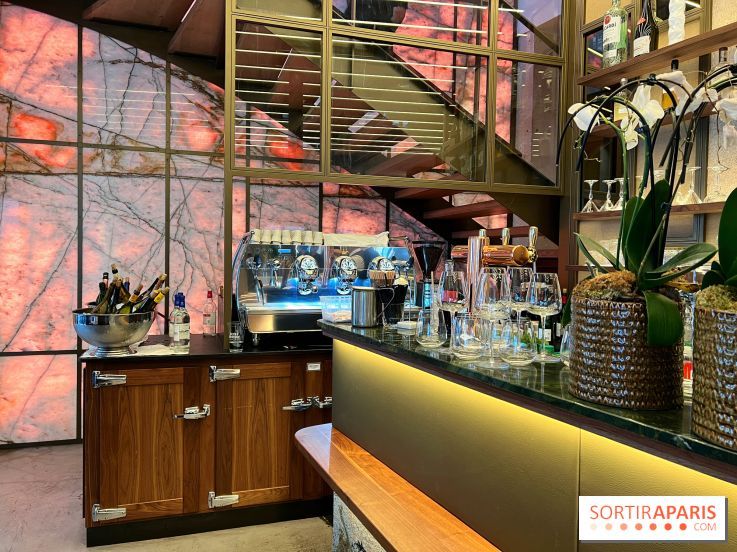
Behind the kitchen counter, the chef Benjamin Marotinewho has worked with Thoumieux, Les Ombres and Spoon, imagines French cuisine with gastronomic accents, inspired by the cultures he encountered during his travels, such as Cambodia.
At noon, lunch menu rather emphasizes Franco-French creations at a fairly reasonable price for the district: 35€ for the starter/main course or main course/dessert menu, 42€ for the starter/main course/dessert menu, to be chosen, however, only from the dishes marked with an asterisk. All the dishes tested in this article are offered in said lunch menu.
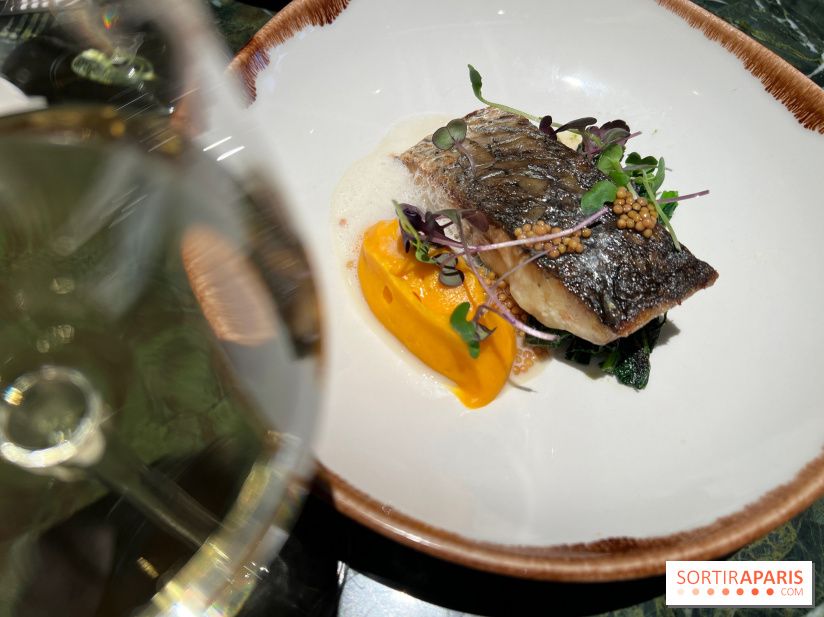
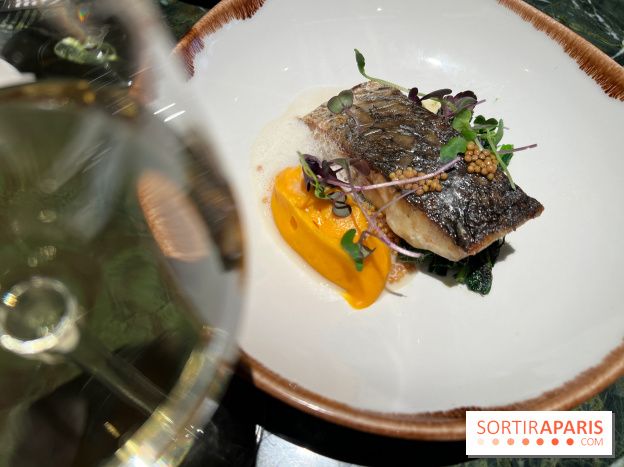
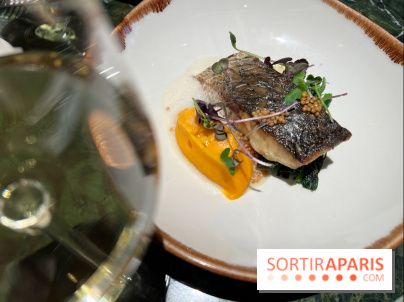
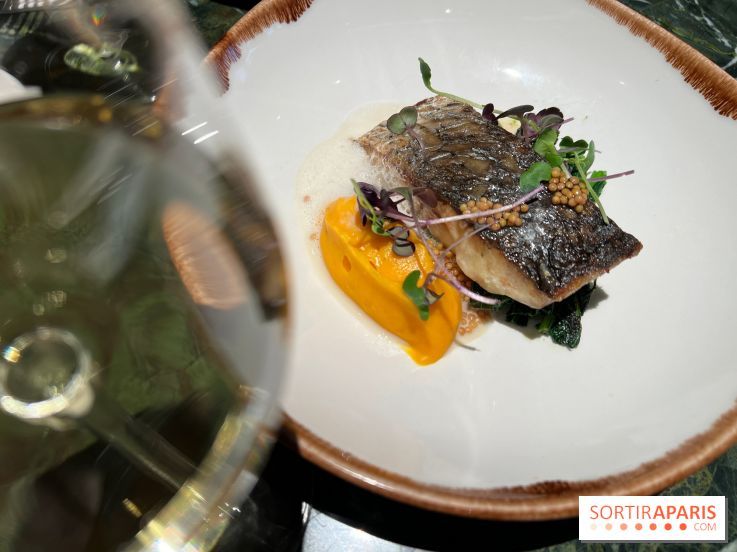
There we find, at the start of the winter season, a turnip soup (16€) covered with a watercress coulis, confit veal breast and well-buttered croutons, or even a haddock brandade (18€), less known than its cod cousin, and accompanied by steamed kale, capers and saffron new potatoes, just to get you started.
The fish of the day (29€) is, for its part, surrounded by a variation of carrots (in cream, in reduction, as well as baby carrots) and ginger, while the beef chuck (29€), mashed potatoes and roasted salsify, delight with its tenderness and candied appearance.
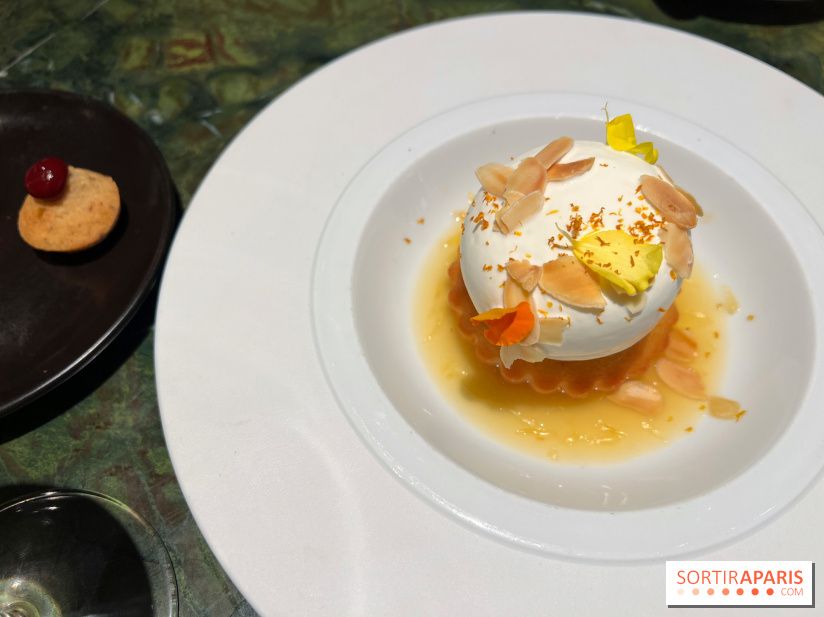
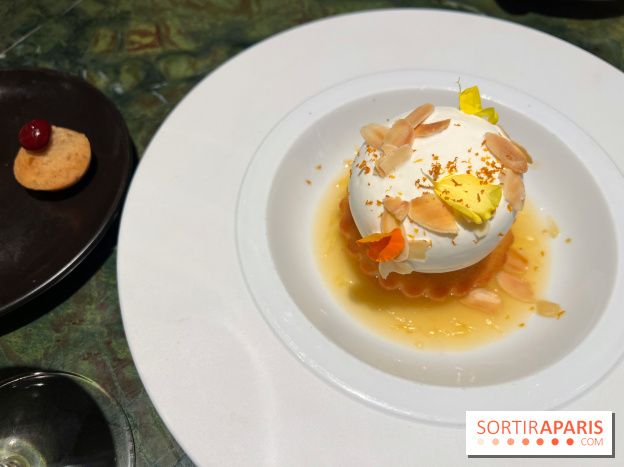
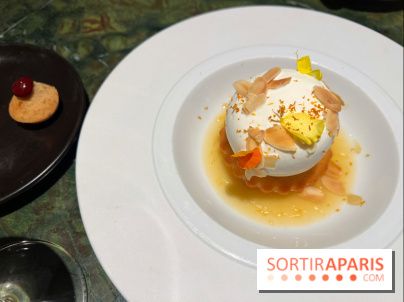
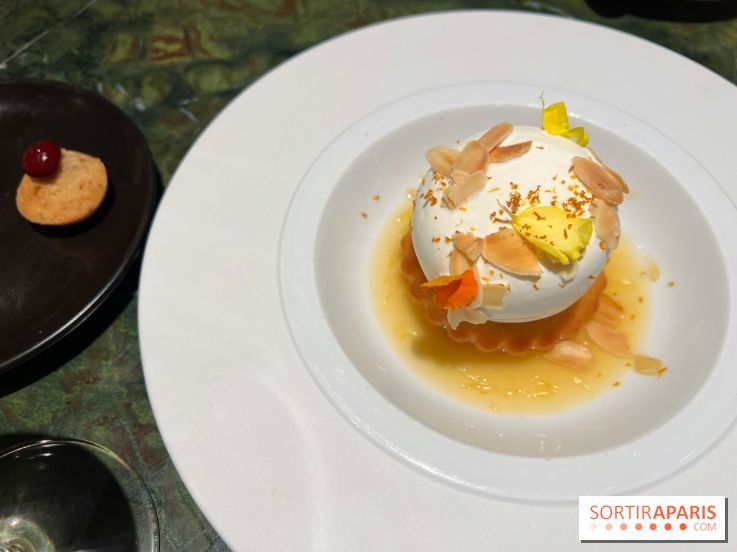
If the Paris-Brest and the signature 1000 sheets with grilled vanilla, caramel and Tonka bean have already received the honors of sweet tooths, the in basbou (15€), a semolina cake which exists in a multitude of variations in Greece, Turkey or even Lebanon, is adorned here with a confit and a citrus syrup, a mandarin sorbet, a siphon of orange blossom and toasted flaked almonds, to finish with a light and slightly sweet touch.
This test was carried out as part of a professional invitation. If your experience differs from ours, please let us know in the comments.

